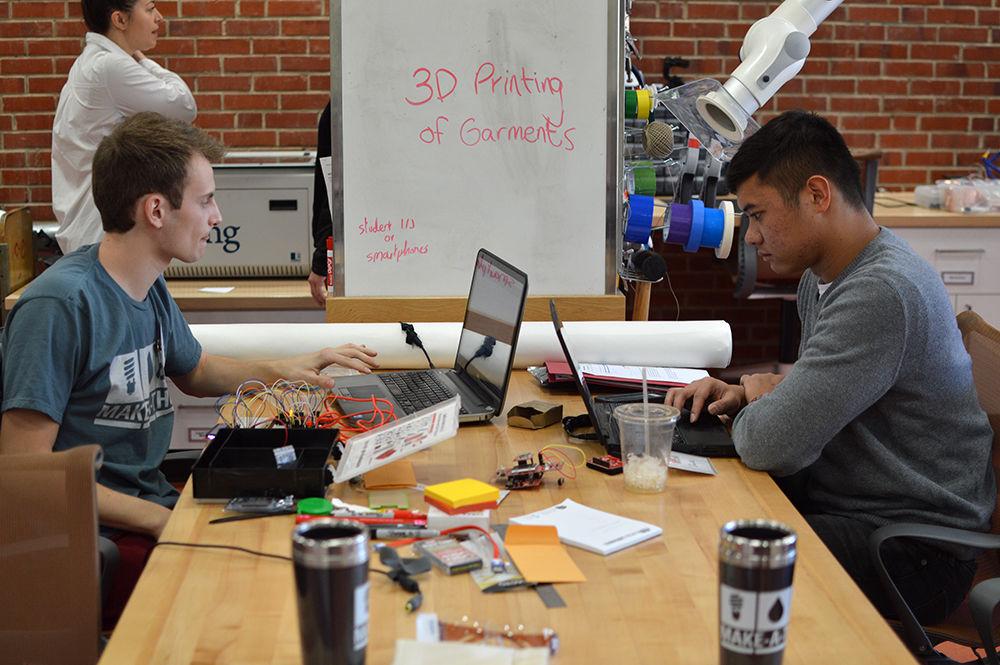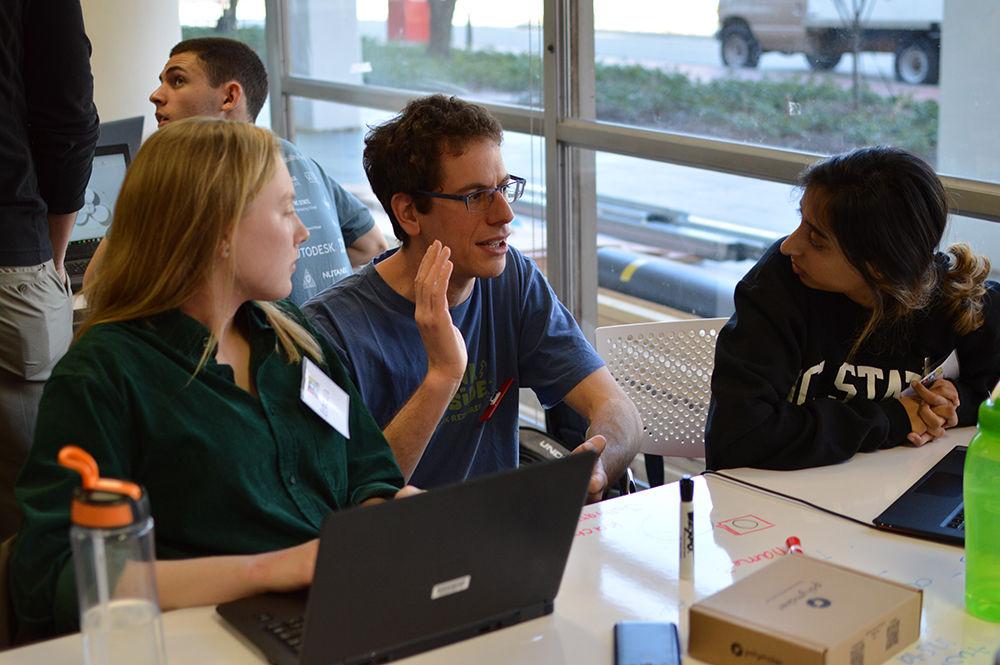Students from all disciplines and majors participated in the second annual Make-A-Thon, a four-day event in which teams competed to build a solution to a sustainability challenge that affects NC State’s campus and the world as a whole.
This year’s competition focused on variety of issues, such as transportation, food waste and sustainable energy. Each of the 25 teams had to make a product, whether it be with a portable device or a widespread community campaign, to combat one of these issues. This competition not only encouraged, but ensured interdisciplinary thinking, with each team requiring students to be from at least two different colleges.
The winning team, Humble Gents, created a bike sharing program that minimizes the cost of setting up specific bike racks, and uses abandoned bikes left on campus at the end of every year. They hope that this will encourage more students to rent bikes and use them as a more sustainable form of transportation.
“It makes it overall cheaper than a regular bike share program, because they make you buy the bikes, the racks and everything,” said Jack Delgado, a senior studying electrical engineering. “We just have little modules to go on existing racks, and use abandoned bicycles, so it reduces costs a lot.”
By reducing costs, the team hopes to make NC State’s existing bike rental program more flexible and accessible. Each member of the team was awarded a desktop 3-D printer and starter kit, a consulting session from NC State’s social entrepreneur in residence and gift certificates for poster printing from Spoonflower, a printing company based in Durham. The team plans to look for sources of sustainability funding to implement their project on campus.
Many teams’ projects stemmed from issues that were closely tied to NC State’s campus. The team Sustain-A-Bility focused on how to improve a more energy efficient form of transportation for students around campus — skateboarding. An issue that skateboarders around campus face often is traveling safely in the dark. This team’s solution, “Skites,” is a skateboard light that is powered from the rotation of the wheels, implementing efficiency in the design of their solution, and encouraging a more sustainable way to travel.
“According to one of the reports that we read, it said that skateboarding was one of the most efficient ways to get across campus,” said Renuka Gogusetti, a sophomore studying materials science and engineering. “So we thought maybe we should encourage more people to ride their skateboards in a more safe and sustainable way.”
On Sunday, the final day of Make-A-Thon, the competition began with each team presenting a one-minute pitch of its solution to the judges followed by science fair-style judging rotations at the individual team tables. During this time, teams thoroughly explain the logistics of their solution, and are judged on the relevance and definition of the problem they are addressing, the feasibility and impact of the solution and their showcase.
Other projects focused on waste management, such as Team Howl to Make a Difference’s garbage glottis. Their project was designed to incorporate a recycling chute into regular trash chutes and separate the two, using the same mechanisms that the human glottis uses in the body to separate air from water. The team was inspired to look at this issue by the opinions of students living in residence halls that found recycling inconvenient.
“One of the things that really drove designing our product was what students actually said,” said Shelly Ransom, a sophomore studying biological engineering. “We sent out a survey to all the residents of Metcalf Hall, and a lot of them said, ‘I’m too lazy to walk all the way downstairs and outside to recycle,’ and a lot of them said ‘I would love an easier solution, like a recycling chute.’”
Overall, the competition has grown from having 44 participants and 11 teams last year, to over 100 students and 25 teams this year. With a growing presence on campus, Make-A-Thon participants are eager to encourage others to participate next year. Maria Paz Alvarez Valverde, a sophomore studying sustainable materials and technology, and a member of Project Flower, a team that made a device that helps farmers track soil data and weather forecasts, shared her thoughts on her Make-A-Thon experience.
“Just being able to step out of your comfort zone and critically assess your ideas during the process is an incredibly useful tool,” Valverde said. “It’s a lot of fun, honestly.”
Rebecca Alderson, a freshman studying mechanical engineering, and Komal Charania, a sophomore studying environmental engineering, speak to Ilan Simon, a mentor from IBM during the Make-A-Thon, which took place from Feb. 2-5. Teams compete to research, design, prototype and build the best solution to a sustainability challenge in hopes to win a Desktop 3-D Printer and Starter Kit and win a consulting session with Aly Khalifa, NC State's social entrepreneur in residence.









